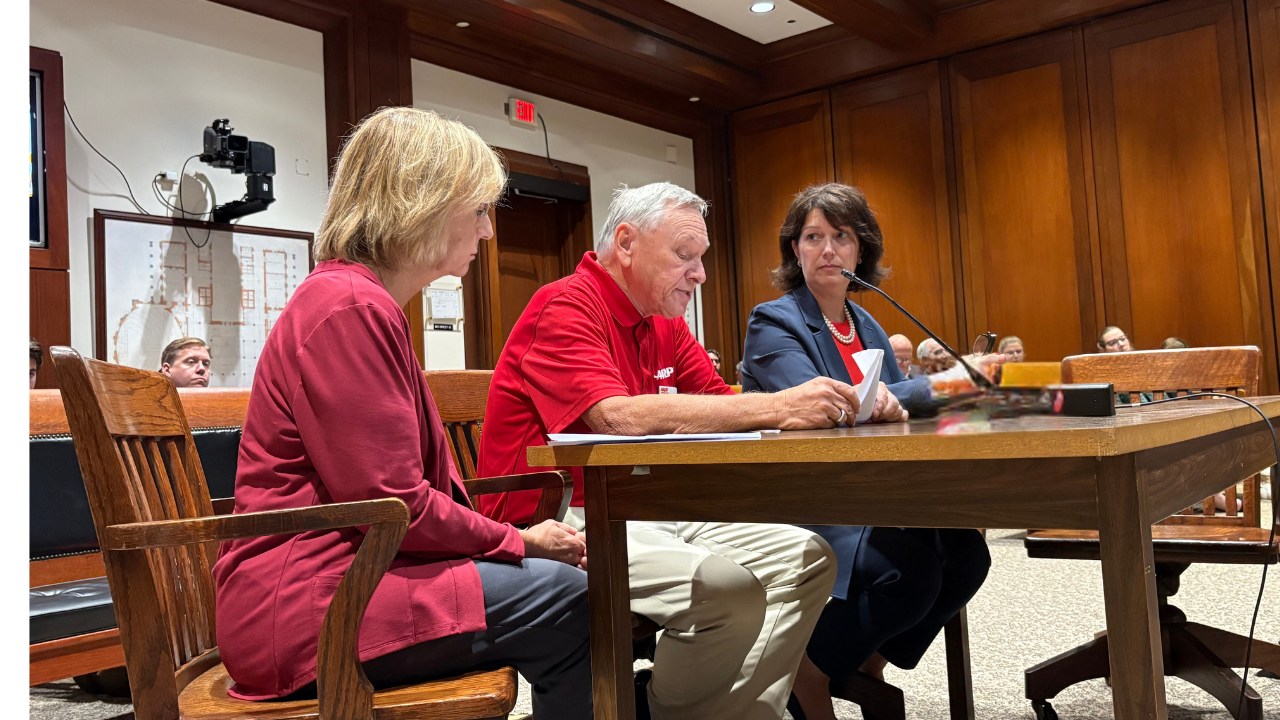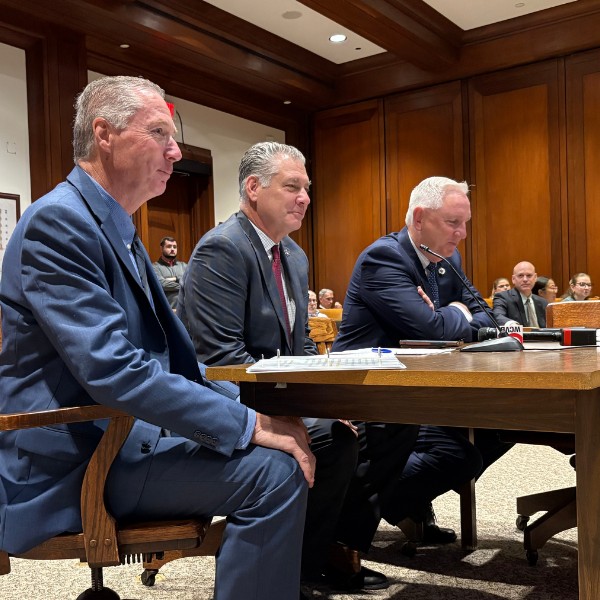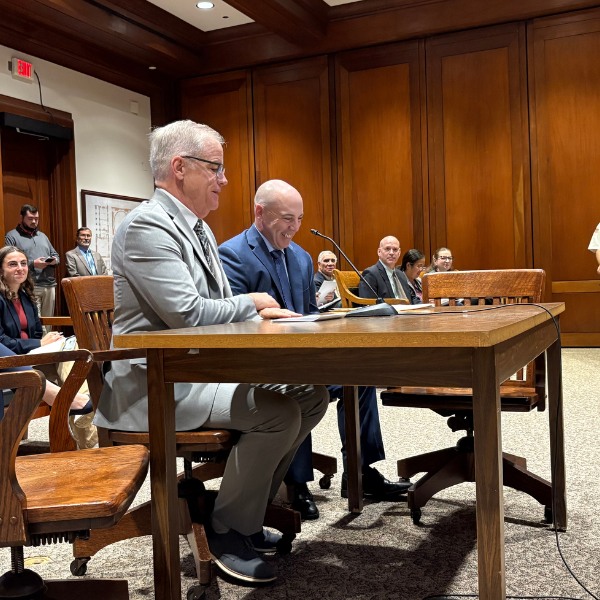AARP Hearing Center

AARP Massachusetts is fighting to protect consumers from crypto scams by supporting legislation that would regulate cryptocurrency ATMs across the Commonwealth.
AARP Massachusetts State Director Jen Benson, along with State President Dennis Hohengasser and AARP volunteer Alice Diamond, testified before the Joint Committee on Financial Services in support of Senate Bill No. 707 and House Bill No. 1247, An Act Relative to Preventing Fraud and Establishing Regulations on Certain Virtual Currencies.
The legislation aims to protect Massachusetts residents, especially older adults, from the growing threat of cryptocurrency-related fraud.
“Millions of Americans are being scammed and defrauded each year, and you can help prevent them from losing their hard-earned money,” said AARP Massachusetts State Director Jen Benson. Read the entire testimony here.
Cryptocurrency ATMs, also known as crypto kiosks, look like traditional bank ATMs and allow users to buy or sell digital currencies. While they serve legitimate purposes, they’ve also become a tool for fraud. In fact, the FBI reports that Americans lost $9.3 billion to crypto-related scams in 2024, a staggering 66% increase from the previous year.
The proposed legislation doesn’t ban crypto kiosks—it introduces common-sense consumer protections to ensure safe and transparent use. Key provisions include licensing kiosk operators as money transmitters, registering kiosk locations with the state, requiring receipts with transaction hashes, transparent fee disclosures, scam warnings at kiosks, daily transaction limits, full refunds for fraud victims (including fees), police access to software analytics, creation of a blockchain study commission, and public education on financial safety. Two provisions AARP Massachusetts considers especially critical are fee limits—some kiosks charge up to 35% in fees, which this bill would cap—and daily transaction limits, which help reduce the risk of large-scale fraud.

Law enforcement leaders, including Middlesex County Sheriff Peter Koutoujian, Essex County District Attorney Paul Tucker, and State Representative Richard Wells, former Chief of Police in Milton testified in favor of the legislation.
"At this very moment somebody is being scammed. This very moment. There’s no doubt some is being scammed," said Sheriff Koutoujian. "And the opportunity for that, we can help reduce, through thoughtful legislation."

One of the bill's sponsors Rep. Tom Stanley (D- Waltham) testified, and brought along a detective from the Waltham Police Department. Det Michael Maher testified, so far this year Waltham has seen 11 cases of cryptocurrency fraud. He praised the bill for proposing a statewide registry for kiosks and setting daily limits. Waltham has recently banned Cryptocurrency ATMs in the city.
AARP Massachusetts State President Dennis Hohengasser shared the story of a woman from Taunton who was scammed out of $4,300 after being tricked by someone posing as her internet provider. Despite red flags at her bank, she deposited the money via a crypto kiosk at a nearby supermarket. Dennis has spoken to the supermarket’s staff about the incident. He testified about their reaction and the need for regulation.
“Host locations of these machines and their staff are totally unaware of the dangers they pose to the communities their stores serve, said Hohengasser. “We must ensure that these machines receive the commonsense oversight and regulation this legislation proposes.” Read the entire testimony here.
Alice Diamond volunteers on the AARP Fraud Watch Network™ Helpline. She testified that this type of fraud victimizes people from all walks of life and the impact the crime has on them is not only financial.
“I have had Helpline calls from college professors, chief technology officers, and retired executives. While the financial impact of these crimes is significant, the psychological toll of being a scam victim can be enormous,” Diamond testified. “People say they are humiliated and don’t want to tell anyone what happened for fear of hearing, ‘I can’t believe you fell for this.” Victims are blamed for these crimes. Not only have they lost money, but they also lose a sense of competence.” Read the entire testimony here.
This legislation is part of a broader national movement. AARP developed this model legislation and is working to pass it across the country. So far, 18 states, including most of New England, have enacted similar laws to protect consumers.
“Criminals have found a new way to steal millions of dollars from older Americans. You can take action to stop them.” Benson told committee members.
AARP urged the committee to favorably pass an Act Relative to Preventing Fraud and Establishing Regulations on Certain Virtual Currencies
Help us get this legislation passed. CLICK HERE to send a message to the committee chairs asking them to pass this bill































































